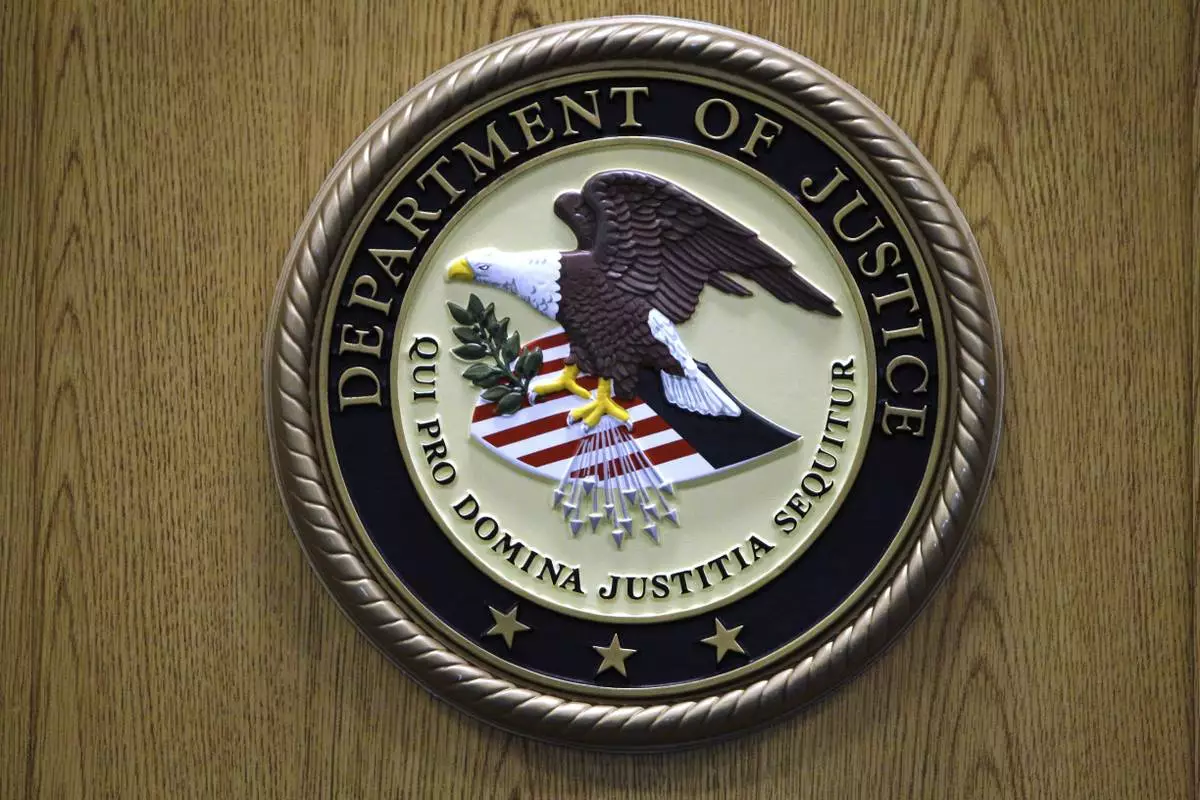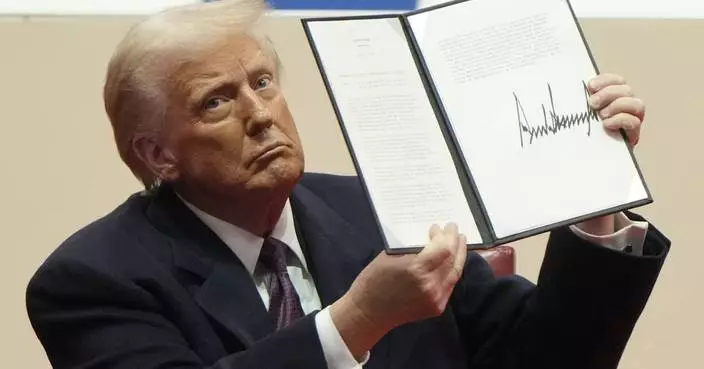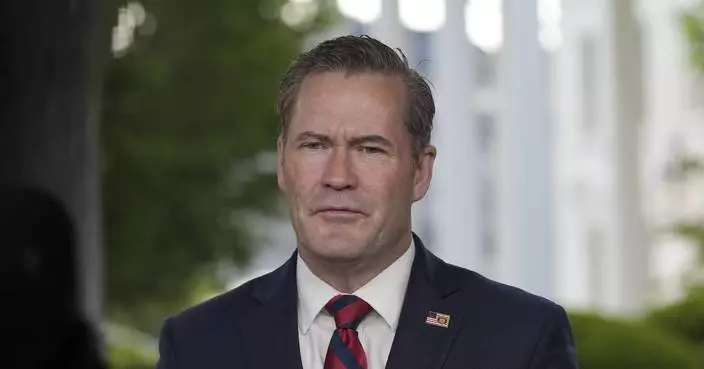PHILADELPHIA (AP) — Jordan Romano says his right arm felt the best it had in a long time — the two-time All-Star closer even hit 99.8 mph on a four-seam fastball.
The Marlins just hit him — rocked him, actually — much, much harder.
The Phillies' eight-inning rout turned close in the ninth once Romano was summoned to close out an 11-4 lead. Dane Myers instead hit a three-run homer, Graham Pauley added an RBI double and Liam Hicks added a two-run shot — his first big-league homer — and suddenly it was 11-10.
Romano, already in the midst of a rough first season in Philly, was heavily booed Saturday as he trudged off the mound.
“Kind of expect that when you're pitching like that, for sure,” Romano said.
Romano was charged with six runs and retired just two batters in the ninth before José Alvarado bailed him out and got the final out of the 11-10 win for his fifth save.
Romano's ERA ballooned to 15.26 in nine games this season.
“I felt confident, honestly, in all my pitches,” Romano said. “I don't know, they were seeing it really well today. Everything I threw in there, I felt like they were pretty comfortable with. Obviously, putting pretty good swings on it.”
After a slow start to the season, Romano thought he might have solved his mechanical issues when he adjusted the leg lift on his delivery. Romano was left to wonder after he gave up six hits on just 22 pitches if perhaps he's tipping his pitches. He said he'd watch the video to find out if there's another flaw in his delivery.
“Usually, I don't (watch video), when it's just a blooper or something like that,” Romano said. “But when they're putting that good a swings on it, for sure.”
Manager Rob Thomson said the Phillies will conduct a deeper dive to determine whether Romano is tipping his pitches.
“He's got a great track record,” Thomson said. “As long as his stuff is good, you've got to believe in him.”
An All-Star in 2022 and 2023, Romano spent the first six seasons of his major league career with the Toronto Blue Jays. He had 105 saves and a 2.90 ERA in 231 relief appearances with Toronto. The Phillies declined to re-sign former All-Star relievers Carlos Estévez and Jeff Hoffman and instead made a short-term bet on Romano with an $8.5 million, one-year contract.
Hoffman signed with the Blue Jays and entered Saturday 2-0 with a 1.59 ERA, 16 strikeouts in 11 1/3 innings and five saves.
The 31-year-old Romano was limited to just eight saves in 15 games last season. He had arthroscopic surgery on his elbow in July but has been healthy with the Phillies.
“What's honestly crazy to me is like, I went out there and executed what I wanted to do,” Romano said. “It's just the worst result possible. I wanted to drive the zone with my heater, throw the slider in there for strikes. I did that. Just got crushed.”
AP MLB: https://apnews.com/hub/mlb

Philadelphia Phillies pitcher Jordan Romano watches a two run homer go over his head in the ninth inning of a baseball game against the Miami Marlins, Saturday, April 19, 2025, in Philadelphia. (AP Photo/Laurence Kesterson)
WASHINGTON (AP) — To understand the Justice Department's struggles in representing President Donald Trump's positions in court, look no further than a quick succession of losses last week that dealt a setback to the administration's agenda.
In orders spanning different courthouses, judges blocked a White House plan to add a proof-of-citizenship requirement to the federal voter registration form, ruled the Republican administration violated a settlement agreement by deporting a man to El Salvador and halted directives that threatened to cut federal funding for public schools with diversity, equity and inclusion programs.
That's on top of arguments in which two judges expressed misgivings to a Justice Department lawyer about the legality of Trump executive orders targeting major law firms and a department lawyer's accidental filing of an internal memo in court questioning the Trump administration’s legal strategy to kill Manhattan’s congestion toll — a blunder the Transportation Department called “legal malpractice.”
According to an Associated Press tally, Trump executive actions have been partially or fully blocked by the courts around 70 times while judges have not impeded the president's orders in nearly 50 cases. Dozens of others are pending.
The Trump administration's effort to reshape American civil society, including a crackdown on illegal immigration and downsizing of the federal government, is encountering resistance from judges across a broad spectrum of philosophical leanings as lawyers for the Justice Department in some cases have strained to answer straightforward questions from judges about the basis or rationale for a particular policy or about the mechanics of its implementation. In at least one instance, a government lawyer who became openly exasperated in court at the lack of information he’d been given from the administration was soon after fired by the Justice Department.
Compounding the problem is an ongoing exodus from the department of experienced career lawyers accustomed to representing the federal government in court. Some of the key arguments in recent weeks have been handled by lawyers newly hired into political, rather than career, positions at the department.
Justice Department leadership has in recent months hired lawyers with conservative credentials from law firms in Washington and with past experience at state and local government agencies — but not necessarily federal experience.
“This is quite rare, if not unprecedented,” said Boston College law professor Kent Greenfield. “I can't think of another instance in which the Justice Department has lost so many cases in a short period of time and the reason they're losing is because they're wrong — and obviously wrong.”
Trump administration officials, including Attorney General Pam Bondi, have attributed the losses to what they call “activist” judges bent on impeding his agenda. Some White House allies have called for impeaching judges, with adviser Elon Musk describing it as a “judicial coup.”
But that belies the reality that some of the most blistering rebukes of Justice Department arguments have come from conservative judges like J. Harvie Wilkinson III, an appointee of Republican President Ronald Reagan who said in an April opinion that the idea the government could not return to the U.S. a man it had deported to El Salvador was “shocking not only to judges, but to the intuitive sense of liberty that Americans far removed from courthouses still hold dear."
Jonathan Turley, a George Washington University law professor, cautioned against making too much so soon in the administration of its legal track record. The Supreme Court with its conservative 6-3 majority, including three Trump appointees, has yet to weigh in on the vast majority of the cases.
“This Department of Justice will continue to defend President Trump’s agenda in court, and we remain confident that we will ultimately prevail,” Justice Department spokesperson Chad Gilmartin said in an email.
The Trump administration has also succeeded in some cases in beating back legal challenges, and some early defeats at the trial court level have been subsequently overturned by a federal appeals court, such as when a panel cleared the way for the administration to fire thousands of probationary workers in spite of a judge’s earlier opinion.
In another case, the Supreme Court overturned a lower judge's order that had blocked the administration from using an 18th-century wartime law to deport Venezuelan migrants, though the court said they must get a chance to challenge their removals before they're taken from the United States. The Supreme Court also recently granted the Trump administration’s plea to cut hundreds of millions of dollars in teacher training money while a lawsuit continues.
“There’s over 600 District Court judges, any one of which can issue limited or national injunctions,” Turley said. The rulings may be important, he added, “but there’s a great deal of runway between a U.S. district court and the United States Supreme Court.
The challenges, however, were laid bare in a Washington courtroom just last week when Richard Lawson, a newly minted deputy associate attorney general, repeatedly struggled to provide what a judge said was “basic” information about one in a series of executive orders targeting a major law firm with punishing sanctions — including the suspension of attorney security clearances.
“So you don’t know whether the firm or the individuals whose security clearances were suspended have been given any notice about the timing of the review, who the decision-maker is, the information that’s being reviewed as part of this review, whether they’re going to have an ability to see that information, comment on the information, correct the information, object to the information?” U.S. District Judge Beryl Howell asked pointedly. “You can’t tell me anything about that?”
“I can't speak to that, Your Honor," replied Lawson, who years before recently joining the Justice Department had worked with Bondi in the Florida attorney general's office and was also a lawyer at a pro-Trump think tank called the America First Policy Institute.
Lawson fared no better weeks earlier when pushed to explain the administration's national security rationale for punishing a different law firm, Jenner & Block, because one of its former partners, Andrew Weissmann, had years earlier been a prosecutor on the team of special counsel Robert Mueller that investigated Trump during his first term.
“You’re not going to really tell me that having someone employed four years ago poses some kind of national security threat?” asked U.S. District John Bates, an appointee of George W. Bush, a Republican.
“Not per se, no,” replied Lawson.
In another case, Judge Colleen Kollar-Kotelly scolded the Justice Department in court papers last week over what she described as the “contradiction” between statements made in court by one of its lawyers “and the facts on the ground.” While the judge did not contend that the lawyer "intentionally misrepresented the facts," the appointee of Democratic President Bill Clinton added: “The Court must remark that this exchange does not reflect the level of diligence the Court expects from any litigant — let alone the United States Department of Justice."
Stuart Gerson, who led the Justice Department’s civil division under Republican President George H.W. Bush and later served briefly as acting attorney general, said it appeared the Trump administration was sending lawyers into court "without adequate information and instructions.”
“I sympathize greatly with these folks who are arguing some of the cases, who are just parroting what they’ve been told to say without being able to answer questions about their ramifications, the what-ifs and the background information,” Gerson said.
Follow the AP's coverage of the U.S. Department of Justice at https://apnews.com/hub/us-department-of-justice.

FILE - The Department of Justice logo is shown on a podium during a news conference, Sept. 30, 2010, in Philadelphia. (AP Photo/Matt Slocum, File)





















































